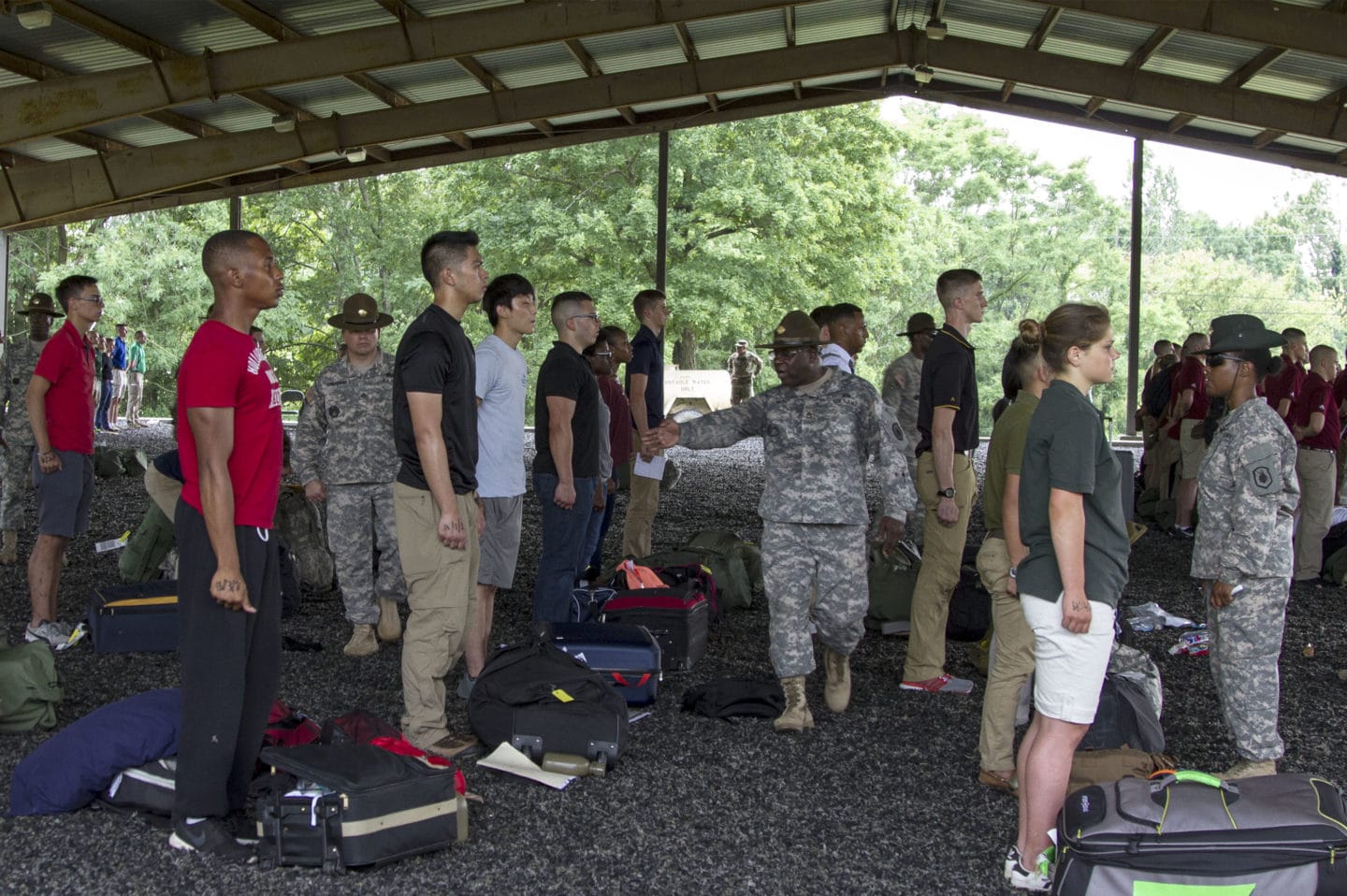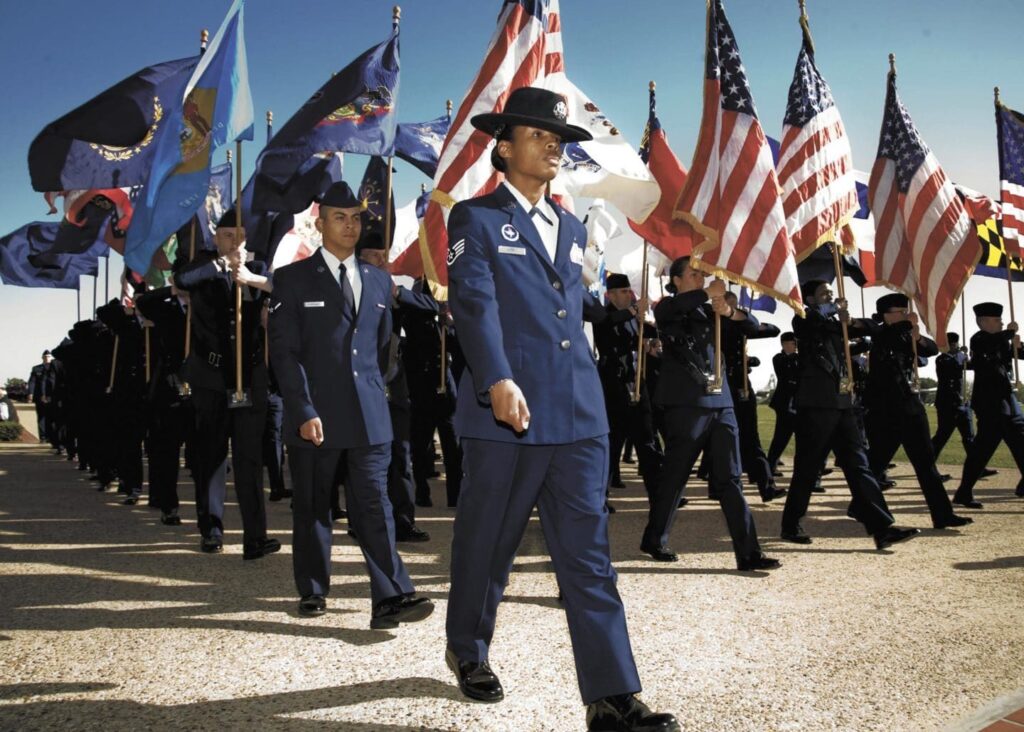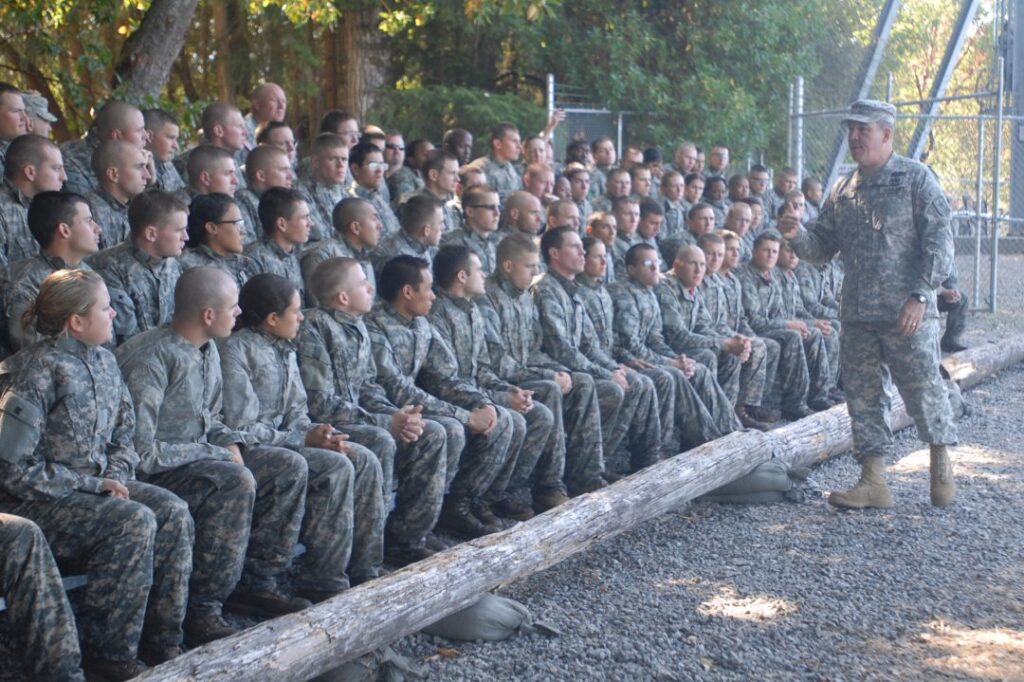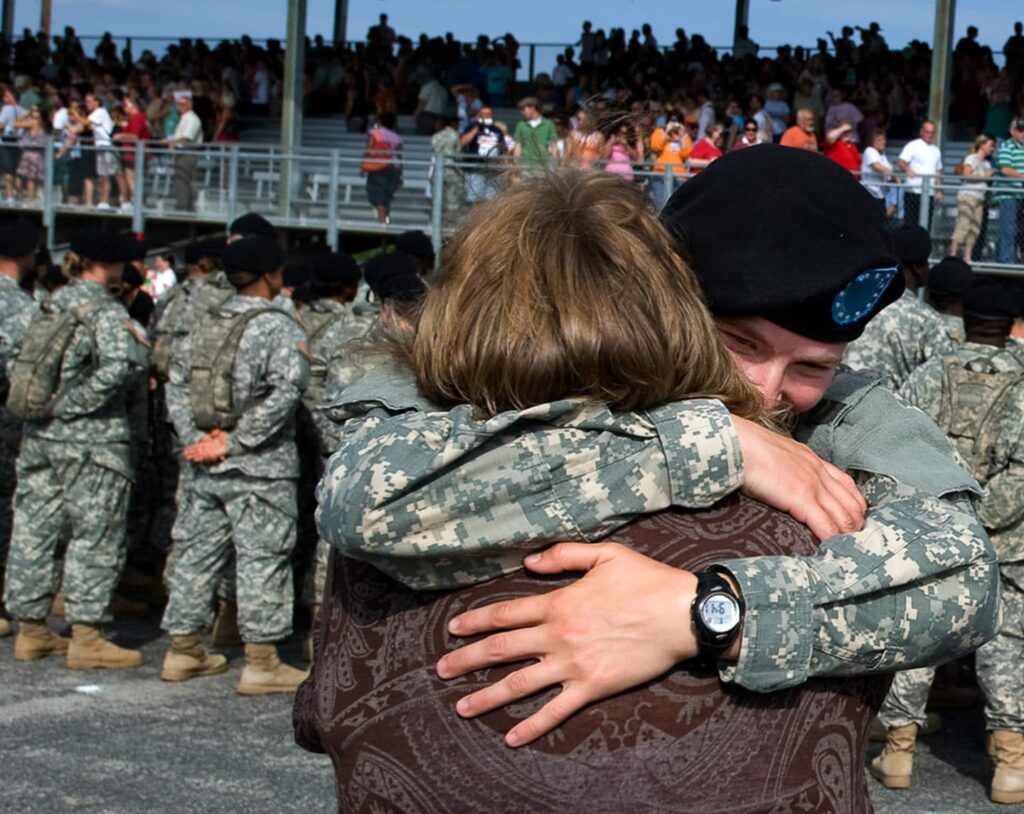I’m a newly commissioned 2nd LT, as well as a former ROTC cadet. I was in the 8th regiment in the summer of 2017. Army ROTC Advanced Camp was personally one of the most difficult challenges I’ve ever faced. But, it was also the most educational and rewarding. While it might seem intimidating, there’s no doubt that with the right preparation and attitude, you will make it through. Soon you’ll be on track to becoming an officer in the United States Army. Here’s everything you need to know to help you prepare for advanced camp.
Army ROTC Advanced Camp consists of a series of challenges that will make up your overall ranking within your platoon. With the right knowledge and preparations, you can excel to the top of your class. This will, in turn, add points to your OML. While a lot of your scoring is left up to the discretion of your cadre, there are several actual graded events.
There are six “must complete” requirements, as well as seven “must-pass” events. Cadets must meet these standards in order to graduate. Events will be spread out over the entirety of camp. As a cadet, you will be given ample time to prepare for each event.
For most events, cadets will be given as many chances as they need to pass, within reason of course. Out of the entirety of my platoon, the only failure we had was from one cadet not meeting the land navigation requirements. Failing a certain event doesn’t necessarily even mean that you will fail Advanced Camp, however, it will certainly hurt your overall ranking.
Advanced Camp Must Complete Events:
- Not missing more than 48 hours of scheduled training. Illness and injury were the major reasons that cadets would have to take time off from training.
- Be assessed in four leadership positions, two in garrison and two in the field. Some cadets had to undergo more than the four required positions due to there being an excess of days.
- The OPAT, which most cadets had already completed at their respective schools.
- The Repel and Confidence course. No one in our company failed either event. As long as you give it a solid effort, you most likely won’t be failed.
- Earn at least an overall rating of “capable.” The grading scale goes incapable, capable, proficient and excellent.
- The CLA (Collegiate Learning Assessment). Which is an online exam that will test your critical thinking skills.
Advanced Camp Pass/Fail Events:
- The APFT.
- Height/Weight. If you fail, you will have several chances throughout camp to make weight.
- Land Navigation. Cadets must find at least three of the four day land navigation points, and at least one of the two night land navigation points.
- The 12 Mile road march, in under four hours with a 35 lb ruck.
- Call for Fire and Tactical Casualty Combat Care. Both of these tests were a lot easier than everyone had expected..
- CBRN (Chemical, Biological Radiological and Nuclear Defense). This was probably my least favorite part of camp, however no in our company failed.
It’s no secret that Advanced Camp is going to be a physically demanding experience. Superior endurance and strength can help separate you from your peers.
Your APFT score is going to be the first physical challenge you will face at camp. While the event is graded as pass/fail in terms of camp requirements, it is certainly in your best interest to score as well as possible.
In the summer leading up to camp, I made the mistake of only training hard enough to safely pass my APFT. I had no intention of scoring a 300. I assumed that cadets were merely expected to pass, therefore I didn’t want to invest too much time into trying to max out each event. I later discovered that your PT score would be a large factor in your rating. This automatically allowed cadets that scored 300’s to be in a much better position. As an added benefit they were also in the good graces of cadre.
Physical fitness is a significant Army attribute and a true indicator of one’s capabilities. My biggest regret from Advanced Camp was not earning a superior APFT score.
With over half of camp taking place in the field, rucking is going to be a daily activity. It is estimated that you will ruck a combined 70 miles while at Fort Knox.
That might sound overwhelming but it is very manageable, especially with the right preparation. A majority of the rucking will take place while training in the field while patrolling for example.
When you are put in a leadership position, there will most likely be several occasions when you will have to run up and down formation with your ruck. Making your fitness detrimental to your ability to lead.
There will be three actual ruck marches during the field portion of camp. Starting with a 4 mile, followed by a 6 mile and ending with an 8-mile ruck.
These will be at least several days apart from one another and be in between field phases. These rucks will be more difficult than the ones you’re probably used to because your ruck will be packed for the field. Therefore, it could be weighing up to 60 lbs.
You will also be responsible for carrying a rifle and possibly other equipment. So keep that in mind when you’re preparing your ruck for the field. It was very common for people to overpack, making their rucks larger and more awkward to carry.
Finally, the 12-mile ruck will be scheduled sometime in the final week of camp. Your ruck will only have to weigh 35 lbs, and you will be given ample time to prepare it. By now you will have had several weeks of daily rucking under your belt, so another 12 miles isn’t anything to be worried about.
Cadets will need to complete the ruck in under four hours to pass the event, but finishing in under three is ideal. I suggest bringing vaseline for your feet to avoid blisters, as well as investing in high end, hot-weather boots; they cost several hundred dollars but your feet will thank you.
Leaders lead from the front, so make sure you’re in rucking shape by the time you get to camp; your cadre will notice.
What To Pack For Advanced Camp
The packing list should have already been sent out by now, and while it includes all the necessary equipment, there are still random items that I would recommend taking. Such as a Ranger handbook. You will be provided with a cadet handbook, however it pales in comparison to the information provided in the ranger one. It will include all the information that you will be tested and graded on. Only a handful of cadets brought ranger handbooks and they were in high demand by the rest of the platoon. A detailed Terrain Model Kit would also suit you well, as it will provide better visuals for the rest of your platoon when conducting rehearsals, leading to a better performance.
The last must have item is a Rite in The Rain notebook, it will rain a lot at Fort Knox, and missions and exercises won’t be halted due to weather. Rite in The Rain products will allow you to work through the elements. All of these items can be purchases on Amazon.
During my time at camp, we were educated on the countless things one could do to get themselves sent home. Once sent home, you are given the opportunity to return the following summer. However, it is ultimately up to your ROTC program whether or not to dis-enroll you from the program. Surprisingly, event failures didn’t appear to be the main reason cadets failed camp, instead integrity violations seemed to be the major reason that people were sent home. An example of an integrity violation is being on your phone during non-designated hours. In the last five days of my regiment’s camp, we had three cadets in our company fail out because they were caught using their cell phones.
Despite us being warned countless times that cell phone usage would result in failing camp, it still happened. It was hard to witness cadets suffering such terrible consequences, because they couldn’t resist the urge to play on their phones. It was even more difficult after they had already completed a vast majority of the camp requirements.
Other examples of integrity violations resulting in dismissal from camp include:
- A cadet using wireless headphones underneath their kevlar during the 12-mile ruck. as well as when
- A cadet who wore a deployment patch that they had not earned.
Your character is under just as much scrutiny, if not more than your physical and mental capabilities while at Advanced Camp. As long as you maintain a positive attitude, demonstrate that your learning and give it your all, you will graduate from Advanced Camp without any problems.





